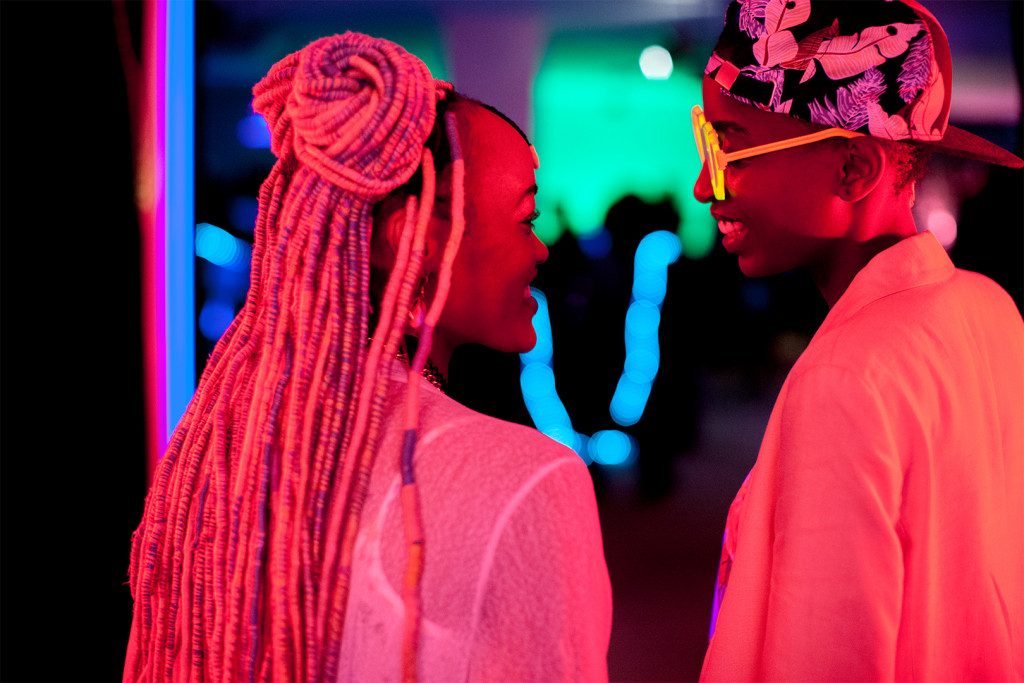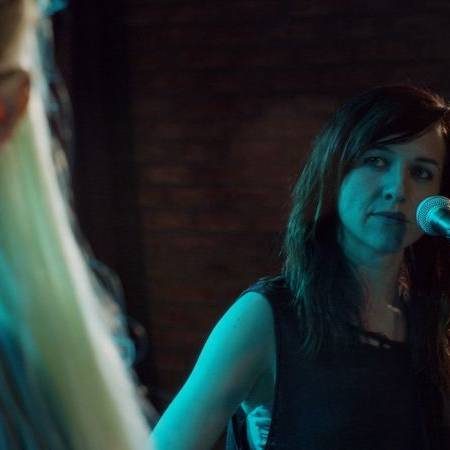
Rafiki is the story of two young women at a turning point in their lives, as they wait for their final high school exam results.
Kena is the daughter of a store owner who is also running for local council; Ziki is the daughter of his political rival. The young women are presented as opposites in so many ways: Kena is practical, Ziki seeks adventure. Ziki dresses in bright colours and bold lipsticks, whilst Kena dresses as though to blend in with the landscapes behind her. The film focuses on their budding relationship, their evolution from strangers to friends to lovers.
Despite being set in a small Nairobian town, within such a niche cultural and religious lifestyle, there’s a certain universality to the hope the film portrays, and Kena and Ziki’s self-sanctioned ignorance as they pretend the real, hateful world around them doesn’t exist. It feels Shakespearean at times, as the narrative shifts to focus on the pressure put on both young women by their politician fathers and their strained relationships with their mothers. But at the end of the day, it’s a striking, soft film that reminds the audience how it feels to be in love for the first time.
At times it feels as though it takes far too long for the story and its characters to find their feet. Interactions between Kena and Ziki feel rushed and not fully explored, as though the film was trying to get straight to the action of the story rather than build their chemistry in an organic way. In that regard, the top half of the film felt off-kilter, and their relationship somewhat forced. At a certain point, as their relationship begins to blossom, the film finds its steady equilibrium as their intimacy is fully explored. Kahiu utilises small moments of being — focusing on a Kena for just a beat too long as she fidgets, shared silences between her and Ziki — to let us into this small world they’ve created for themselves. It’s here where the film truly shines, and where it is, in some moments, phenomenal.
Perhaps the film’s greatest asset is its transcendent cast, who offer delicate, understated performances with such poise and elegance. In particular, it’s Samantha Mugatsia as Kena who breaks your heart with her poignant portrayal. Kena is caught between so many people — her church, her homophobic friends, her girlfriend whom she loves. She also tries to protect her mother, still fragile after a bitter divorce. She stoically juggles the problems of so many others, and it becomes easy to forget just how young she is. She’s just a girl, waiting in limbo for the rest of her life to start whilst also trying to keep her current life from imploding. Mugatsia walks this line so incredibly carefully, slowly and silently breaking down the walls that Kena has had erected for so long.
The scenes Kena and Ziki spend together are gorgeous — moments of tension so masterfully built and handled with such tender care, they manage to turn the film from okay to incredible. But it’s not just a love story bathed in soft lights and a gentle soundtrack. When it wants to be, Rafiki is confronting and shockingly so. It’s another tension that Kahiu builds so perfectly. We know that Kena and Ziki’s relationship can’t possibly last in the community they’re in, and we become terrified for what will happen when they get found out. When that moment does come, it gives these characters even greater depth than before.
Though it is a coming of age story at its core, Rafiki deserves much more than that personifier alone. It’s a story of love, resilience and finding your authentic within a community based so strongly on specific conservative values. Despite its imperfections, the film will stay with you days after you watch it in a stubborn refusal to let go of the characters.




